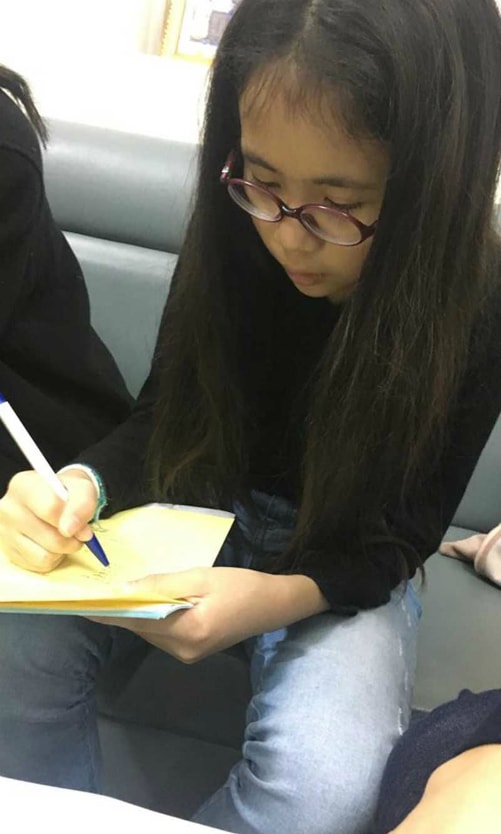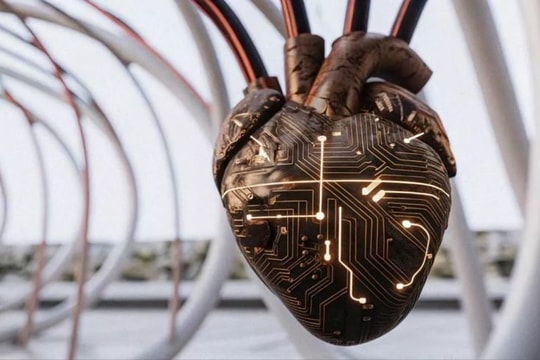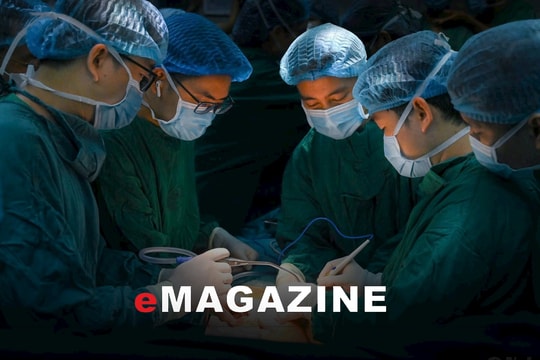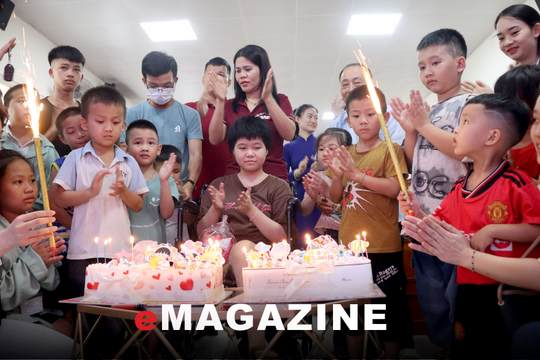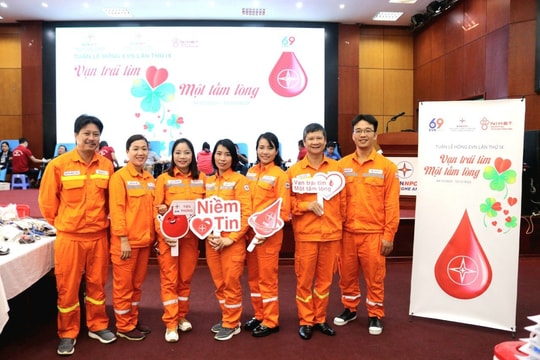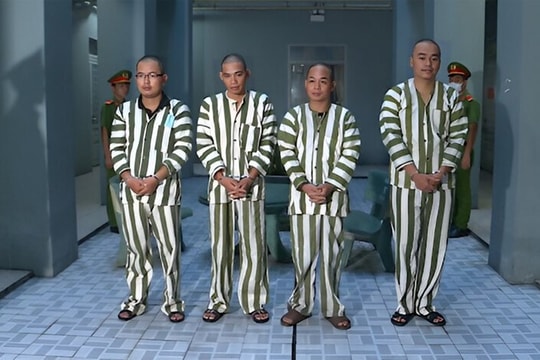The first family in Vietnam registered to donate organs and tissues after death.
The family of Dr. Dang Hoang Giang, residing in Hanoi, is the first family in Vietnam to register to donate organs after death or brain death.
On the morning of December 28, like any other normal day, the 52-year-old man with gray hair, his wife Vu Chi Mai, 44, and two daughters Mai Chi, 17, and Mai An, 11, went toNational Organ Transplant Coordination Center, Hospital HVietnam-Germany Friendship Association.
"We came here to register to donate organs," Mr. Giang told the Center's staff.
About 20 minutes later, four members of Mr. Giang's family completed the procedure to register to donate organs after death or brain death., have in hand a card recording the registration for organ and tissue donation.
|
Mr. Giang and his wife with their daughter Mai Chi. Photo: Le Nga |
As the days passed, Mr. Giang's family received many discussions surrounding the organ donation. Some people praised and some criticized, but for Mr. Giang, this was not a spontaneous action but a long-cherished plan of the whole family. Notably, all family members were "completely voluntary".
Mr. Giang said that the moment he signed the organ and tissue donation registration form also marked the end of his near-death journey last year.
In 2017, Mr. Giang participated in a very special program called "Journey to the End of Life", accompanying people who were close to death. Mr. Giang understood and felt sorry for the physical pain, mental torment, and wishes of those who were standing on the fragile line between life and death.
This man said that participating in "Journey to the Dead" has given him many lessons about life and people. In particular, he learned about the current shortage of donated organs in Vietnam. Hundreds of thousands of people are waiting for heart, kidney, liver, cornea transplants... to live while the number of organ donors is very small.
The idea of registering to donate organs had been looming in his mind ever since. Then, one day, Mr. Giang met a rural girl in her early 20s in Thanh Hoa. The girl had cancer and wanted to donate her corneas after she passed away.
To reach this humane decision, the girl had to convince her family many times, overcome the villagers' concept of dying with the body intact and the neighbors' criticism. Finally, the girl passed away with her family's wish to donate her organs fulfilled. That little girl had strongly inspired Mr. Giang.
After each story about near-death experiences like the young Thanh Hoa girl, Mr. Giang "passed on the fire" to his two daughters. Gradually, his humane stories became an indispensable "dish" in every daily meal. Then one day, his whole family decided to donate their organs when they died.
""At first, no one in my family had the idea of organ donation, let's call it far-fetched. However, the trips and stories from strangers inspired the whole family," said Mr. Giang.
Recalling the day he took his entire family to register for organ and tissue donation, Mr. Giang said the only family member who had many concerns was Mai An. The moment she filled out the organ donation registration form made the 11-year-old girl look straight at death.
In the organ donation registration form there are 10 different boxes, three people inThe family ticked all the boxes that could be donated such as bones, marrow, skin, kidneys, liver, corneas... As for Mai An, she ticked the boxes for kidneys, pancreas, liver, bones... then stopped and hesitated for a long time at the box for heart.Finally, the girl checked the heart box and gave the registration form to the center staff.
"The moment sitting before this application form is one of the moments when one faces one's death most directly, most nakedly. A feeling of insecurity and fear rises in the heart."An's heart stopped and hesitated, but I respected her feelings, and she finally agreed to donate," Mr. Giang recounted.
Holding her organ donation registration card, the only complaint of this 11-year-old girl is that her ID photo is not pretty. She wants to change to a prettier one. And17-year-old Mai Chi shared, "I'm very happy to do something meaningful."
|
Baby Mai An fills out a registration form to donate organs and tissues after death. Photo: HG |
Mr. Giang said, according to theBy law, family members have the right to donate tissues and organs of the deceased.He and his wife also signed.confirm on the organ donation registration form of two children.
"I encouraged and took my grandchild to register for organ donation as a form of civic education so that he could understand this meaningful act.Later I am 18 years old"He is old and has citizenship. If he wants to change his mind, that is his right and cannot be interfered with. I just want my children to be understanding and compassionate," Mr. Giang shared.
Mr. Nguyen Hoang Phuc, Deputy Director of the National Coordination Center for Human Organ Transplantation, expressed his gratitude for the noble actions and gestures of Mr. Giang's family.This is the first case of a complete family (including 4 members) registering to donate organs after death or brain death.Mai An is not the first person under 18 to register to donate organs at the center, but she is the youngest girl to register to donate organs with her family.
Mr. Dang Hoang Giang holds a master's degree in information technology from the Technical University of Ilmenau (Germany) and a doctorate in development economics from the Vienna University of Technology, Austria. Mr. Giang has extensive research experience in the social and economic fields of Vietnam. His areas of expertise include economics in transition, governance and transparency, and cultural aspects of technology.
Since 2008, Mr. Giang has been Deputy Director of the Center for Community Support and Development Studies (CECODES) - a non-governmental organization.


